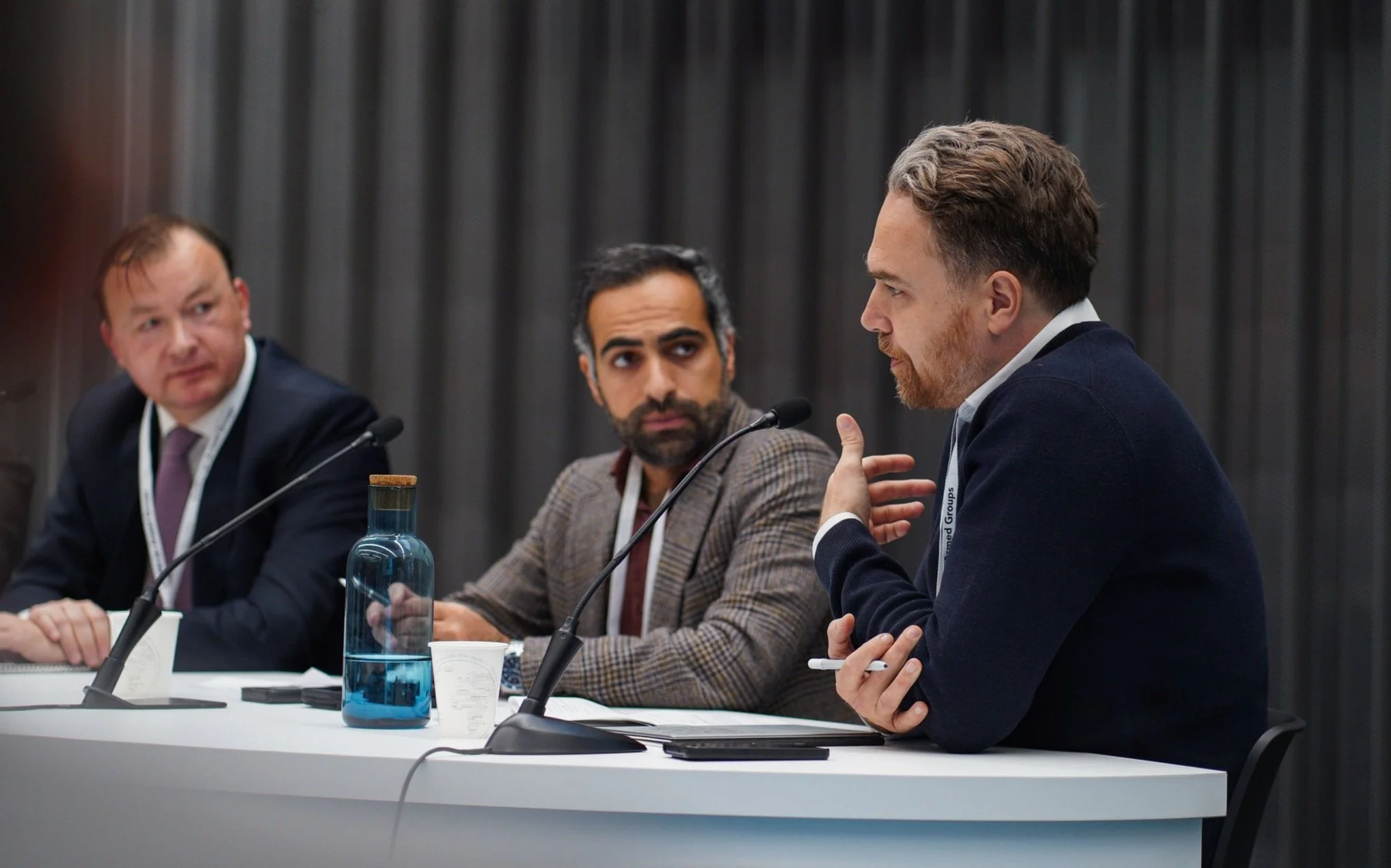Symposium: Alternative pathways to engagement
On November 18, 2024, the Centre on Armed Groups and the Geneva Graduate Institute’s Centre for Conflict, Peacebuilding, and Development (CCDP) hosted a half-day, closed-door symposium titled Alternative Pathways for Dialogue with Armed Groups and De Facto Authorities. Against a backdrop of growing geopolitical fragmentation and the limits of traditional peacemaking, the event brought together leading experts, practitioners, and policymakers to explore innovative strategies for engagement and dialogue.
Through a series of panels featuring diverse expertise, the symposium underscored the need for pragmatic, context-specific approaches to dialogue with armed groups and de facto authorities. Below are some of the highlights from the day's conversations.
Breaking down the challenges of engagement
The opening panel, Fragmentation, Polarisation, and Hesitation, examined how shifting global dynamics have eroded traditional conflict resolution frameworks. Speakers highlighted:
Afghan entrepreneur Rangina Hamidi
The declining relevance of international norms and institutions in the face of geopolitical polarisation.
The complexity of conflicts fueled by illicit economies and the "franchise model" of armed groups that prioritise external interests over local accountability.
The failures of isolating de facto authorities like the Taliban, particularly in missing opportunities for engagement on shared concerns such as climate change and humanitarian access.
The discussion emphasised that while humanitarian engagement has shown relative success, fragmented international approaches, donor politics, and risk aversion have often limited its impact.
Finding common ground: pragmatism and innovation
In Rethinking the Routes to Dialogue and Common Ground, speakers called for boldness and creativity in designing new pathways for engagement. Key takeaways included:
Acknowledge reality: Armed groups are not only parties to conflict but often de facto governing authorities. Engaging them requires recognizing their role in local governance, humanitarian service delivery, and even environmental conservation.
Incremental progress: Successful dialogue is rarely achieved overnight. Patience and phased commitments are essential. But this requires a high risk appetite, long-term commitment and strategic patience.
Beyond peace agreements: Traditionally, much attention has focused on big, formal processes to end conflict. Yet incremental and informal engagement on issues such as climate adaptation or child soldier recruitment may offer alternative entry points for building trust and common ground.
Participants also noted that innovation, like Geneva Call’s deeds of commitment, can help foster adherence to international norms without relying on state-centric frameworks.
Norwegian Special Representative for Afghanistan Pål Klouman Bekken, Centre on Armed Groups Fellow Abdalhadi Alijla, and CCDP’s David Wood
Ways forward
The final session looked ahead, focusing on how international actors can overcome systemic barriers to engagement. Speakers urged the integration of research—particularly political economy analyses—into mediation, development, and humanitarian efforts. Addressing illicit financial flows and organised crime linked to conflicts was highlighted as critical to understanding the broader context in which armed groups operate.
Key recommendations included:
Centre ground perspectives: Understanding the needs of populations living under armed group control is crucial for meaningful dialogue.
Embrace risk-taking: Progress requires stepping beyond the comfort zone of traditional diplomatic protocols and embracing innovative approaches.
Leverage non-traditional mediators: Local actors, tribal leaders, and civil society groups can often bridge gaps where formal diplomacy falters.
Participants acknowledged that while no single approach guarantees success, embracing pluralism and ground realities can pave the way for more effective engagement.
Global Centre for Pluralism Secretary General Meredith Preston-McGhie, Centre on Armed Groups Co-Director Florian Weigand, and Padoh Saw Taw Nee of the Karen National Union
Looking ahead
The symposium closed with a call to action: participants were encouraged to continue exploring alternative pathways for dialogue and to build on the rich insights shared throughout the event. As conflicts grow more fragmented and the traditional system struggles to adapt, innovative and locally driven solutions are needed more than ever.
Want to learn more?
Download the full summary note here.
Photo credits: Boris Palefroy / Geneva Graduate Institute




